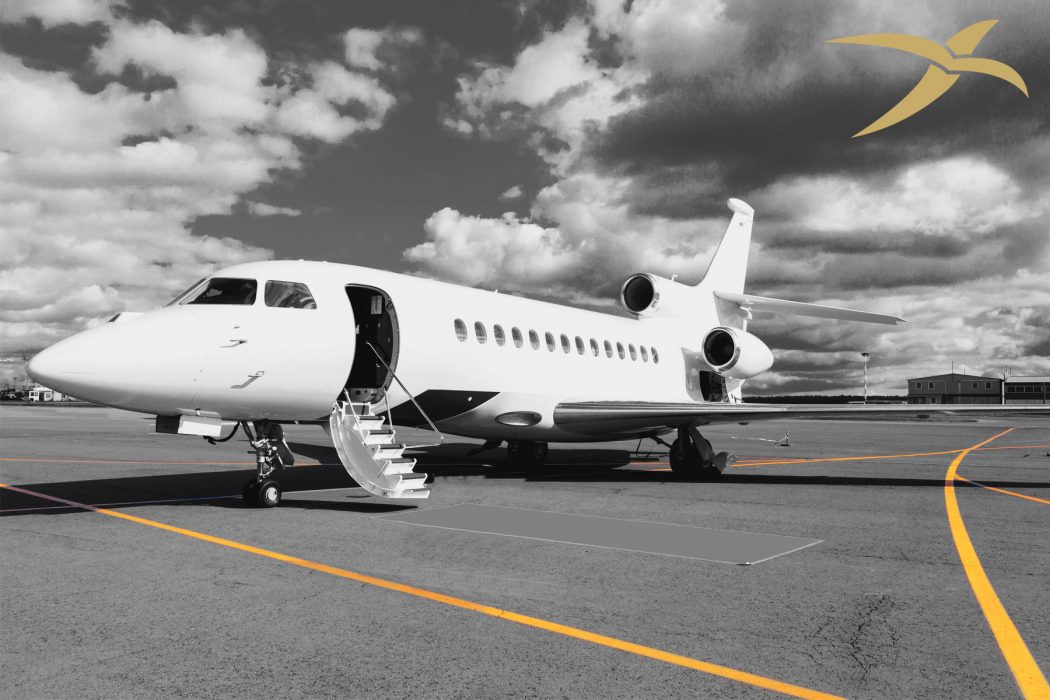The common perception in the global travel industry is that private aviation meets the needs of the wealthy. Yes, in part it does, but the business air market is far more than that. It connects remote locations without commercial connections and plays a key role during humanitarian operations. Its flexibility allows this segment of air travel to adapt to almost any industry’s challenges.
Official 2019 data from the Federal Aviation Administration (FAA) implies that more than 5,000 airports serve private aviation in the US, compared to just over 500 for the commercial counterpart. Up to 80% of all private flights go to smaller cities, with 41% of them without access to commercial aviation.
Furthermore, the possibility to connect isolated areas not only serves the local community, but also Small and Medium-sized Enterprises (SMEs) that rely on private aviation to deliver goods where commercial flight lacks operations. The No Plane, No Gain campaign specifically supports the previous. An effort between the National Business Aviation Association (NBAA) and the General Aviation Manufacturers Association, introduced a decade ago to instruct stakeholders on the importance of private aviation in the United States and its communities, business and general public.
Humanitarian Missions
And there’s more to private aviation. Palm Beach-based charter company BitLux has played a role in humanitarian missions in South Florida in past years. Hurricanes that strike the region call for relief missions that take supplies and medication to affected communities, isolated due to diminished connectivity and shortage of basic goods.
Kyle Patel, President and CEO of BitLux is all too familiar with situations like what we are experiencing today with the global Covid-19 outbreak.
When natural disasters hit certain regions, as was the case with Hurricane Irma in the Caribbean and Miami during 2017, private aviation plays a very important role before and after the event. Both for evacuations and perhaps, more importantly, humanitarian relief. And today, we are also seeing the value of this market during the coronavirus, granting passengers the reliability they need during uncertainty.
On the same line, demand peaks when extreme weather or a certain crisis hits a region. It’s what private air charter companies are experiencing with Covid-19, grounding thousands of commercial flights and leaving business aviation as the go-to option to get home safely, while also minimizing the opportunities for the spread of the virus thanks to exclusive boarding and less (and familiar) passengers in the cabin.

Which is the right aircraft?
The option to choose the aircraft is one of the most coveted aspects of private aviation. There’s a perfect plane for each route, and the service of any reputable charter firm is to advise each client. For instance, turboprops are unique airplanes thanks to the operational capability to land in short runways and even in grass or gravel.
The same would be certain for short flights, less than two hours, or to deliver products for a small or medium company, granting cost efficiency through low operational costs, especially if there’s a need to rely on private aviation on a regular basis to support business goals. Larger midsized or heavy jets provide more cargo capacity for humanitarian operations and their speed is noticeable during longer flights.
In conclusion, private aviation is far more than luxury and celebrities uploading selfies to Instagram. That is certainly a portion of this segment, also with increasing demand, but the base of this industry lies behind the scenes; a reliable service with the mission to support any sort of need in a safe, agile and cost-efficient fashion.
BitLux allows crypto investors a real-world application for their lucrative investments. We continue experiencing the accelerated viability and growth of cryptocurrencies on a global scale. With this, you now have an anonymous, efficient and secure method to enjoy private luxury travel. We put the private back in private air travel.





